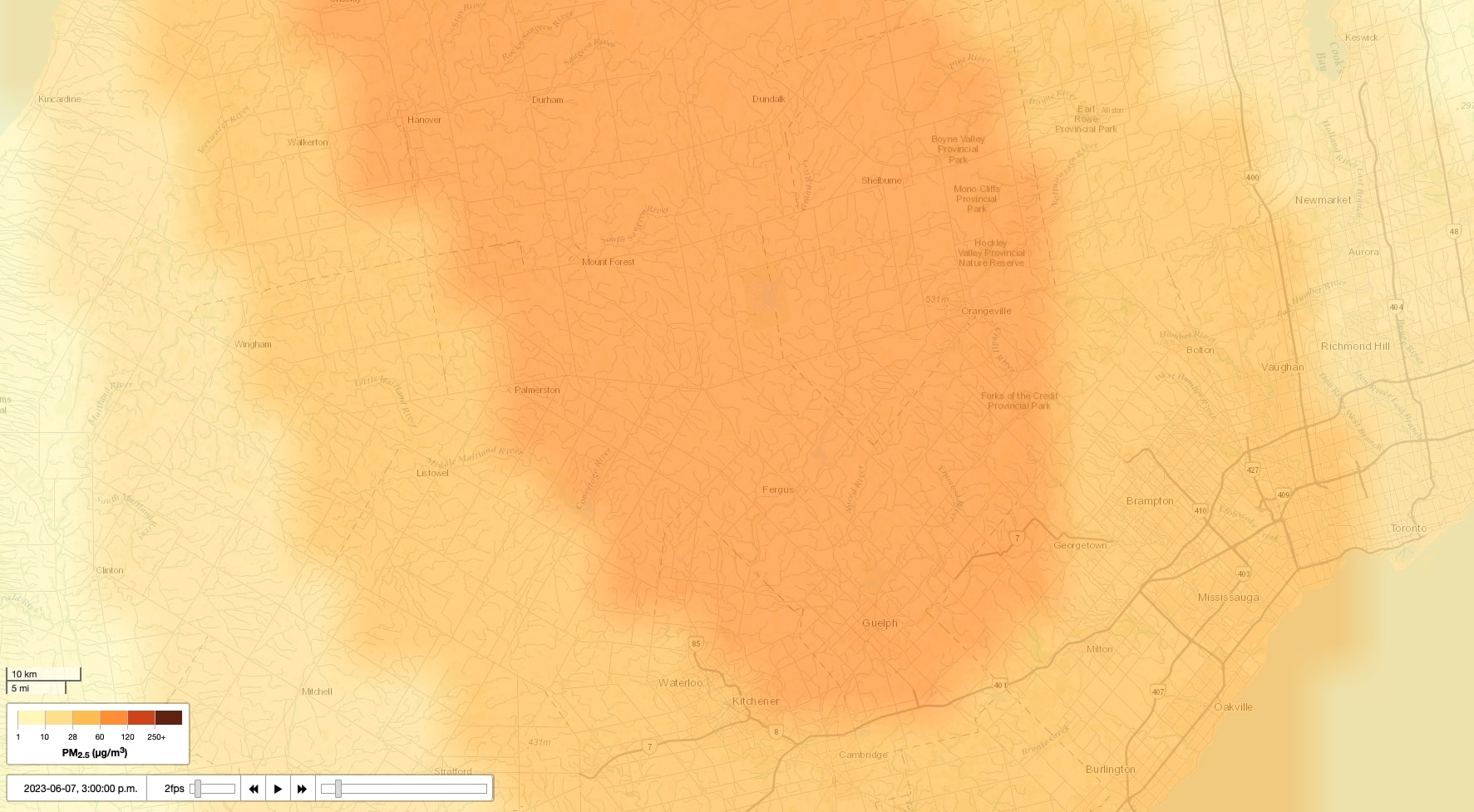WELLINGTON COUNTY – Environment Canada has issued a special air quality alert for Wellington County, and much of southern Ontario, due to smoke plumes from Quebec and northeastern Ontario.
“High levels of air pollution have developed due to smoke from forest fires,” the June 7 alert states.
“Poor air quality will persist into the weekend.”
Environment Canada warns that “wildfire smoke can be harmful to everyone’s health, even at low concentrations” and air quality “can fluctuate over short distances and can vary considerably from hour to hour.”
According to FireSmoke Canada, an information portal run by weather researchers at the University of British Columbia, conditions in Wellington County on June 7 will worsen until about 3pm.
And much of the smoke density will travel beyond the county by 7pm.
FireSmoke Canada suggests local air quality could degrade to a level of 60 to 120 micrograms of carcinogenic inhalable particulate matter per cubic metre.
The Canadian Council of Ministers of the Environment states human exposure shouldn’t be above a daily average of 27 micrograms.
Environment Canada warns that people with lung or heart disease, older adults, children, pregnant people, and those who work outdoors are at higher risk of experiencing health effects caused by wildfire smoke.
It encourages everyone to take steps to reduce their exposure to smoke, including:
- stop outdoor activities and contact your health care provider if you experience shortness of breath, wheezing (including asthma attacks), severe cough, dizziness or chest pains;
- check on people in your care and those around you who may be more susceptible to smoke;
- find a location with clean, cool air such as a library, shopping mall or community centre;
- stay inside if you are feeling unwell and experiencing symptoms;
- keep indoor air clean in your home (keep your doors and windows closed if the temperature in your home is comfortable);
- use an air purifier with a HEPA filter in a room where you spend a lot of time (avoid air purifiers that produce ozone); and
- if you must spend time outdoors, a well-fitted respirator type mask (such as an N95 or equivalent respirator) can help reduce exposure to the fine particles in smoke (however, respirators do not reduce exposure to the gases in wildfire smoke.
For more information visit the federal government’s website.



